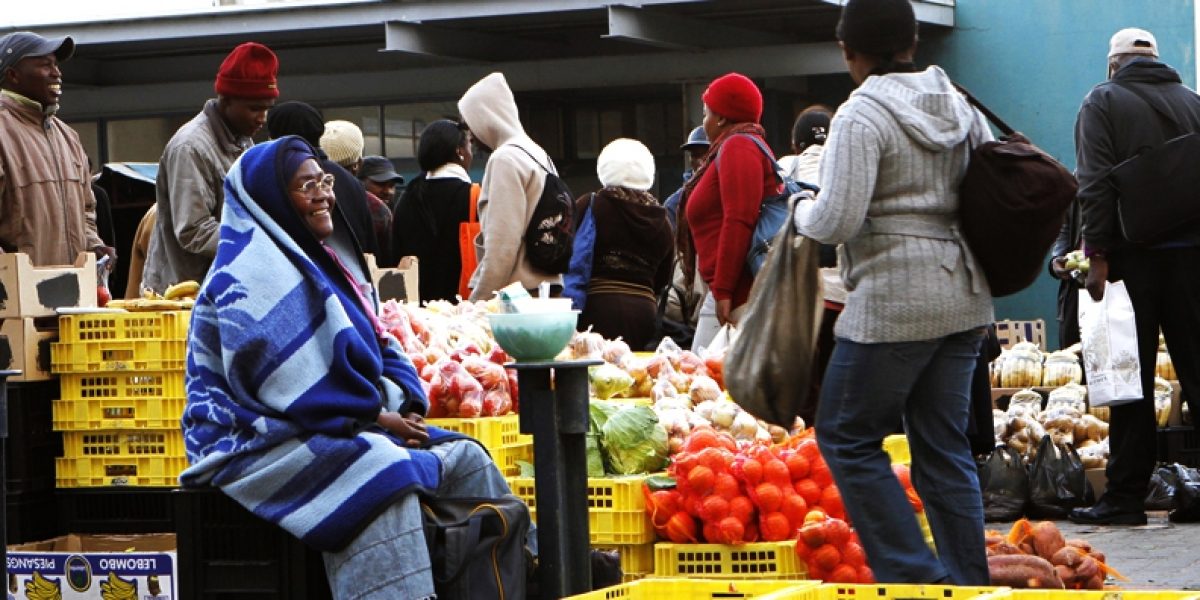Their complaint was not so much against British colonialism or imperialism, but rather that the British regime excluded them from also enjoying the fruits of colonialism produced by the exploitation of cheap black labour as well as the exploitation of SA’s mineral treasure trove of diamonds, gold, coal, platinum, chrome and manganese — to name but a few.
Afrikaner nationalists were allowed into the British-created economic system in 1910; African nationalists were allowed in 84 years later, in 1994. The problem SA faces today, which it also faced during Afrikaner nationalist rule, is that the vast majority of South Africans are excluded from participation in the economy.
The challenge SA faces under African nationalist rule is how to build a new capitalist socio-economic system that includes all citizens. The exclusion of the majority of citizens from economic benefits during the Afrikaner nationalist era led to a near implosion of the country, especially in the 1970s and 1980s.

Graphic © Karen Moolman. Source: Endemol Stats SA, Reserve Bank, Reuters, Financial Mail.
There is therefore no reason to believe that an implosion will not happen during the African nationalist rule.
African nationalists of the ANC have bought some time with their extensive social welfare programme. When this fails, which it will given the massive mismanagement of the macro economy, the powers that be have a number of tougher fall-back positions. These include strengthening the power of traditional leaders over the poor in rural areas and of the paramilitary police, as we saw in action at Marikana.
At midnight on April 26 1994 Afrikaner nationalists — who were a coalition of maize, gold and sugar producers — lost political power. White citizens who never controlled the state retained their political, economic and social rights. At midnight on April 27 1994 black nationalists — who were a coalition of black middle class leaders of organised labour and civil society — gained control of political power and therefore control of the state. Black people acquired the same political, economic and social rights that whites had all along, but they did not control the state.
On April 27 1994, for the first time in the modern history of SA (since 1652), the controllers of the state did not also own capital. And, for the first time, owners and controllers of capital lost political power to nonowners of capital. Political power gives its holder the monopoly to tax society. It also gives its holder control of the state and especially control of the state’s monopoly of violence in order to collect the taxes.
What have the black nationalists done with the political power they gained on April 27 1994? They went on a consumption binge. SA’s economy is consumption driven while the Chinese economy is investment driven. This explains SA’s high unemployment (27.7%) compared with China’s low unemployment (4%).
For the past 23 years ANC rule has been one big feast for the middle and upper classes of all races. The state and its enterprises created a massive and hugely overpaid black managerial class. Not to be left out, the private sector joined in by promoting vast numbers of white-collar employees. In the meantime SA’s productive sector stagnated due to lack of investment and in the process shed hundreds of thousands of workers.
SA’s unproductive real economy has therefore become a major importer of much of what is consumed. We import chicken, beef, sugar, shoes and luxury cars. We have to restructure who controls political power, which today is controlled by a coalition of the black middle class, parts of organised labour and leaders of civil society. As it does not own capital, the objective of this coalition is to consume state revenues rather than to promote investment in gross fixed capital formation.
In order to industrialise beyond where it is today, SA needs a new political coalition to control state power. This coalition must include the underclass, which stands to benefit the most from the increased industrialisation of the economy. Industrialisation will overcome the economic marginalisation of the underclass by creating employment opportunities. This new coalition must also include owners of capital who stand to benefit from economic growth but are disadvantaged by the government’s policies that promote consumption at the expense of investment. The inclusion of owners of capital will address their political marginalisation that happened in April 1994.








